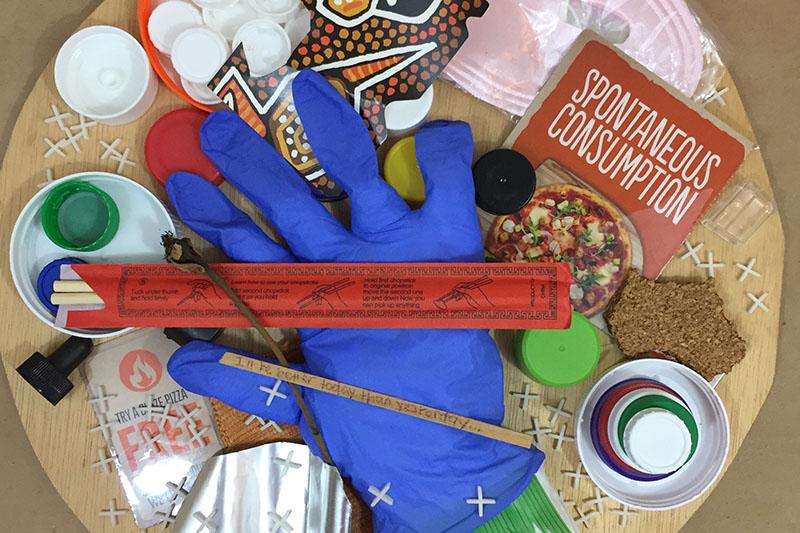Newcomb Archives to create digital “scrapbook” of COVID-19 and gender
As this unforgettable semester comes to a close, Newcomb Archives is asking women and trans, non-binary, gender-nonconforming and LGBQ individuals, “How are you documenting life during quarantine?”
Newcomb Archives, part of Newcomb Institute, is dedicated to collecting, preserving, and making accessible records that document the history of women and gender in the Gulf South. In the tradition of eclectic memory-keeping work, the Archives invites contributions of original artwork, ephemera, photographs, zines, personal essays, poems or other types of submissions created during quarantine.
“The idea isn’t that folks have abundant amounts of time right now to be creative or crafty,” says Chloe Raub, head of Archives and Special Collections, “but that we all document our day-to-day lives in different ways, and these forms of documentation are pieces of a bigger picture.”
While the virus affects all people, marginalized individuals and communities are put under additional pressures during a public health crisis. In an article titled “The Coronavirus Is a Disaster for Feminism,” published in The Atlantic last month, Helen Lewis notes, “A pandemic magnifies all existing inequalities… Across the world, women’s independence will be a silent victim of the pandemic.”
Raub describes the project as inspired by Newcomb’s history of collecting scrapbooks, zines, journals and other alternative forms of documentation intended to preserve a record of women’s lives against the backdrop of what's happening in the world at large.
Submissions will be preserved in the Newcomb Archives’ Digital Repository, as well as shared via social media with the hashtag #covidgenderscrapbook. Anonymous submissions also are welcome. Follow Newcomb Institute (on Instagram, Twitter and Facebook) to view submissions and learn more about the COVID-19 and Gender Scrapbook.

